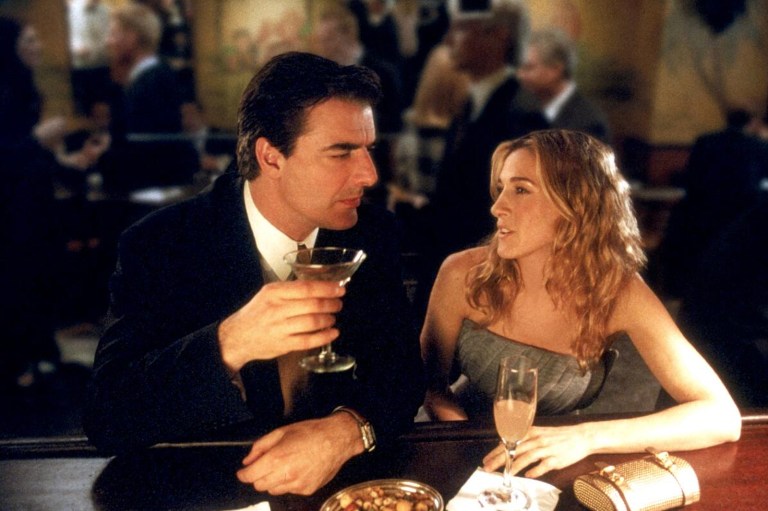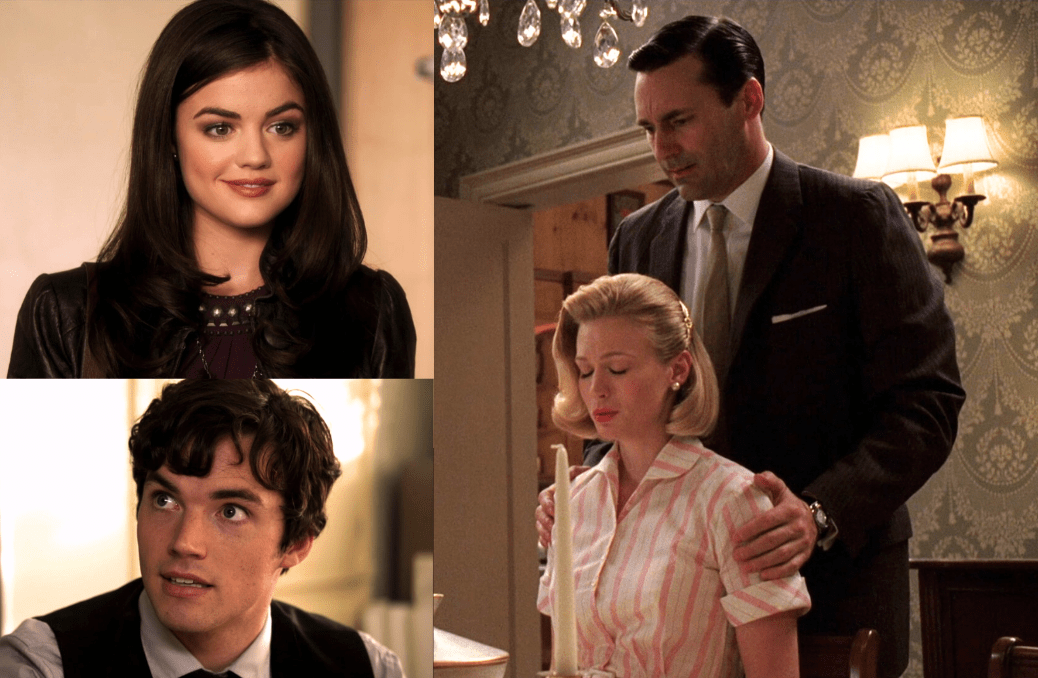
5 Most Toxic Couples on Television Filled With Narcissistic Manipulation and Red Flags
Certain couples and characters from popular television shows tend to be romanticized, yet it is clear these relationships were filled with narcissistic manipulation, abuse, and red flags. Here are five of the most toxic couples on television that embodied the dynamics of emotional abuse and narcissistic manipulation.
Don Draper and Betty Draper from Mad Men

Audiences are drawn to Mad Men because they love the 1960’s nostalgia, aesthetic, and fashion, but there’s a certain level of moral depravity that is constantly minimized under the guise of “charm” and the disturbing illusion of the “good old days.” Don Draper is a successful, charismatic advertiser who frequently cheats on and emotionally (at times even physically) abuses his wife Betty Draper with whom he shares three children, and also ends up cheating on his next wife, Megan, who also happens to be his secretary. Characters who commit serial infidelity, engage in pathological lying, weaponize verbal abuse and violent threats, are associated with dark personality traits such as narcissism and psychopathy, but these behaviors are rarely called out by viewers of Mad Men due to the romanticization of Don Draper’s character and his lifestyle, as well as over-rationalization of Draper’s actions with some viewers casting him as a sympathetic character who is “broken.” Draper keeps his double life of infidelity hidden and under wraps from his wife, and subjects her to double standards when she finally cheats on him, verbally abusing her rather than looking at his own history of cheating. He also issues violent threats, pushes her aggressively and throws things at her if she dares to call out his distant and emotionally negligent behavior. Through his affairs and abusive behavior, he exposes his young daughter to a hostile environment where he is seen getting intimate with other women and even gaslights his daughter to keep quiet about his affairs.
Draper also commits identity fraud and assumes a false identity stolen from a lieutenant he went to war with. Throughout the show, we see the problematic trope of “victim turned to bully” being promoted and justified. The reality is much darker – while Draper does have a dark childhood, this doesn’t justify his mistreatment and abuse of women throughout the series – in fact, such trauma can often make survivors even more careful about how they treat others because they’ve been through the same. This is one couple where viewers are conditioned to normalize abuse and aggression while painting the main character as sympathetic.
Ezra Fitz and Aria Montgomery on Pretty Little Liars

One of the most infamous student-teacher relationships to be displayed on television was the one between 16-year-old Aria Montgomery and her 22-year-old English teacher, Ezra Fitz on the popular television show, Pretty Little Liars. Throughout the show, the manipulative Ezra ardently pursues Aria, even stalking her and her friends without much guilt or remorse, appearing to only break up with her numerous times only to create an even stronger trauma bond that keeps her attached to him. His manipulation and grooming of her is quite covert, as he appears to take a concern in her welfare, yet even when he pretends to do the “right thing” by walking away from the relationship, he continues to pull her back in, and it’s clear he won’t let her go. Young viewers who grew up watching the show were ingrained with the idea that such relationships were “normal” and even romantic with the constant “will they or won’t they?” push-pull dynamic between the two. Except, unlike “normal” relationships, this one involved a predatory teacher and an underaged student – one we later find out he was aware was underage when they first met and targeted specifically. Spoiler alert: it also ends up that Ezra also became romantically entangled with Aria’s young friend Alison too and pursued her even when he found her real age. In hindsight, this relationship aged terribly now that more information about grooming and manipulation tactics are now readily available, and Ezra is seen as more of a predator, and rightfully so. Yet the television show tends to romanticize the relationship as Aria’s friends encourage this relationship as destined, true love and her parents are cast in a negative light for trying to end it. In the original book series the show is based on, Ezra’s narcissistic and manipulative tendencies are more heavily highlighted as problematic, and he actually gets arrested for his behavior. In the television show (spoilers ahead), Aria and Ezra end up getting married – again, normalizing this highly problematic relationship.
Mr. Big and Carrie Bradshaw / Samantha and Richard from Sex and the City
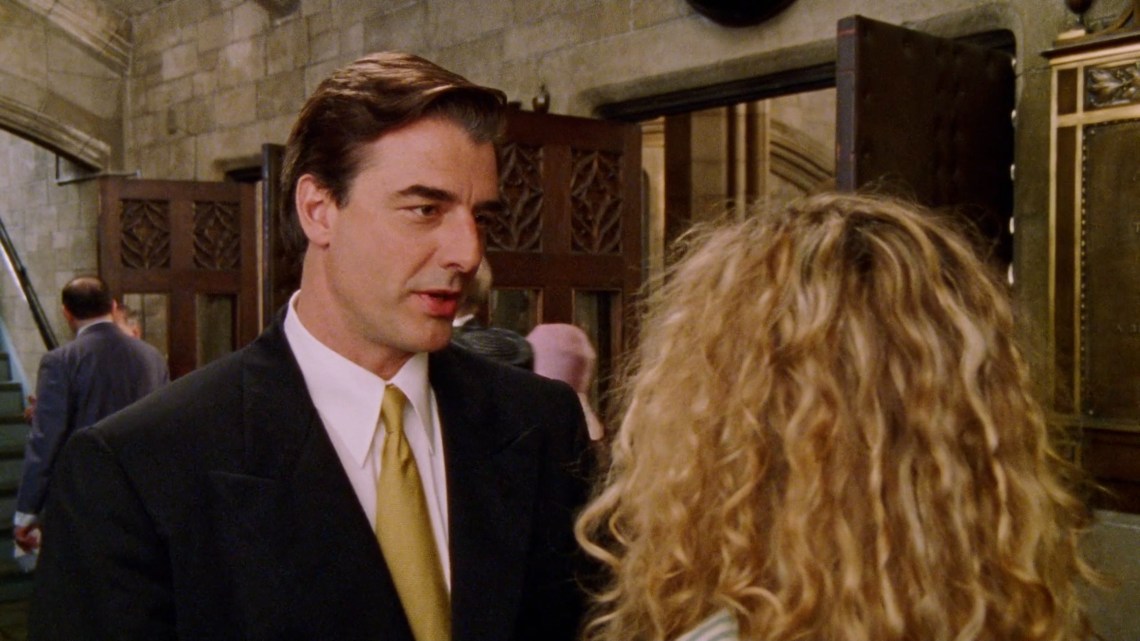
There are viewers who will likely see narcissistic traits in both the characters of Mr. Big and Carrie Bradshaw, since Carrie is often a self-centered and self-absorbed friend who often fails to take accountability for actions that harm others, and even cheats on her fiancé Aidan with Mr. Big while Mr. Big is still married. The impulsive and compulsive need to run back to Mr. Big even while in a happy relationship and not care about the feelings of her fiancé are certainly narcissistic. Yet the dynamic Mr. Big has with Carrie is very reminiscent of many narcissistically manipulative relationships where the person with more “power” and wealth uses it to overpower their partners. Mr. Big is an emotionally unavailable narcissist who seems to take great pleasure in toying with Carrie’s emotions, continually provoking jealousy in her by parading around his dates and his trophy wife while they’re seeing each other and only coming around with the false hope of commitment or even marriage when he senses she is moving forward into a happier new relationship.
Jealousy induction is a major narcissistic tactic according to research, and so is attempting to hold some semblance of power and control over a partner when you “fear” they’re moving forward and healing. Mr. Big goes out of his way to sabotage Carrie’s relationships by showing interest whenever she is finally with a healthy partner, only to run off and abandon her when they are finally at the altar. Viewers will likely find parts of both characters illuminating when it comes to narcissistic tactics. Samantha and Richard’s relationship dynamic is also similar, and on an even more extreme level on the show. Richard promises commitment to Samantha, only to continue having affairs with other women and break her heart yet again, ensnaring her back into the toxic cycle when he sees she is feeling more self-empowered and moving forward into healing. The couple is at first romanticized as two people who usually flee from commitment finally becoming devoted to one another on screen, but the brutal reality check that Samantha is actually the only one staying faithful is also present. Richard is a narcissistic and greedy partner who continually makes false promises he cannot keep.
Karen Miller and Kit Parker on Tell Me Your Secrets
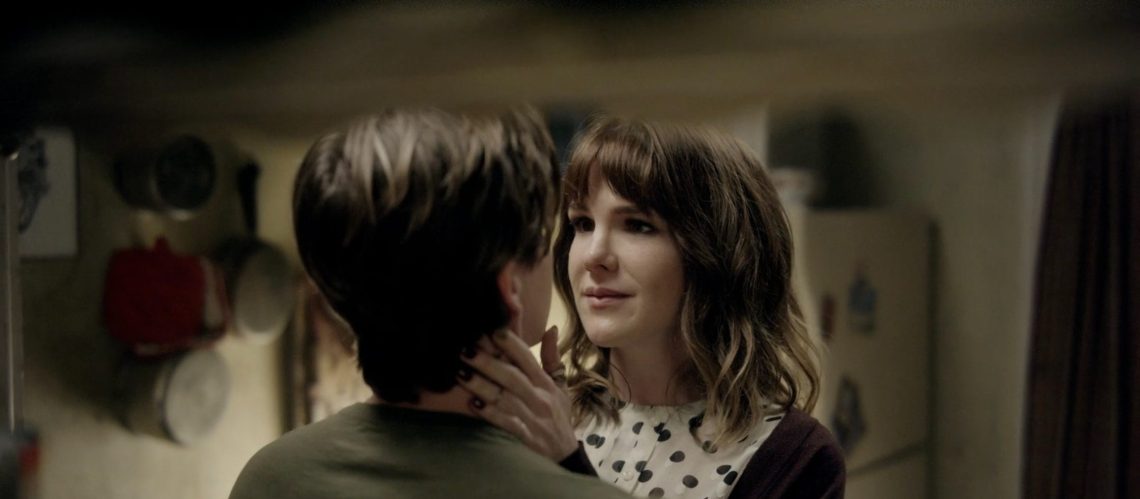
The show, starring Lily Rabe and Hamish Linklater, skillfully creates suspense as we follow the journey of three characters who are all connected to a dangerous serial killer and psychopath, Kit Parker, who has a history of grooming young women to become his accomplice, and also murdering many women in brutal ways. The main character, Karen Miller, is the ex-partner of notorious serial killer Kit Parker, assumed to be a potential accomplice. Due to the traumas she’s experienced, Karen suffers from large gaps in her memory which makes her unable to discern how involved she was in Kit’s murders of various women – although she begins to get gradual flashbacks of the night of one of the murders. Viewers watch the romanticized and euphoric beginnings of their love story through these flashbacks, and in certain scenes, the show makes it seem like Karen is the only one Kit truly loved or genuinely fell in love with. Yet it becomes clear throughout the show that he manipulated and love bombed her into a relationship after discarding his previous partner callously (a partner he groomed as a young woman). In reality, a psychopathic individual like Kit is not capable of love, remorse, or empathy in the way the show may portray – but given we are getting these details from Karen’s memories, it makes sense that such a romanticization would color these memories. The erosion of Karen’s memory and identity, as well as her confusion post-trauma will be relatable to many survivors of gaslighting.
Kit and Karen’s “love story” also resonates with partners of narcissists and psychopaths as it illustrates the struggle between reconciling a psychopath’s false mask and fairytale romance with the ruthless reality of their true nature. Yet some of the vicious predators of this show are unlikely to be guessed until the very end, and this thriller reminds us that some of the worst monsters are not the ones who are readily identified but rather are the ones who hide in plain sight.
Perry and Celeste on Big Little Lies
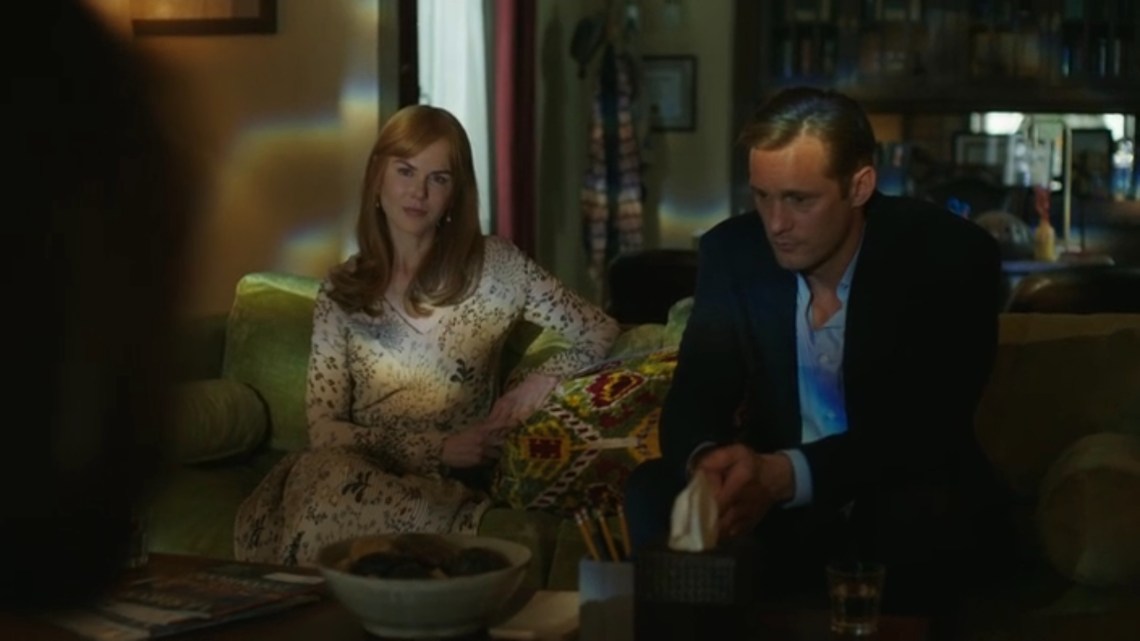
Through the relationship of characters Perry and Celeste, the show Big Little Lies captures the secrecy of an abusive relationship and the subconscious coping methods the victim often engages in to survive such a toxic relationship. Perry and Celeste are presented as the “ideal” couple to society yet Celeste experiences sexual, physical, and emotional abuse that takes place behind closed doors. Celeste tells her couple’s therapist that she is in love and that Perry treats her like a goddess – yet she is often seen bruised, laying on floors, or aggressively shoved and hit by Perry. This juxtaposition exposes the rationalization and romanticization of red flags as merely sexual experimentation, or an exciting sex life rather than the abuse it really is. Both Celeste and Perry seem to depict any chaos in the relationship as “mutual” fighting and arguments or taboo sex, yet it is clear the abuse comes primarily from Perry, and any “rough sex” is actually nonconsensual and abusive. Perry is the quintessential narcissistic “charmer” who appears to be a loving father and husband to the outside world yet exploits his wife and subjects her to deranged sexual and physical violence. The scenes of Perry and Celeste at couple’s therapy with their therapist Dr. Reisman are some of the most illustrative scenes of gaslighting ever to hit the screen, as Perry is invested in keeping up the façade while Celeste gradually comes to terms with the fact that she’s in a relationship with a malignant narcissist who seeks power and control over her.

